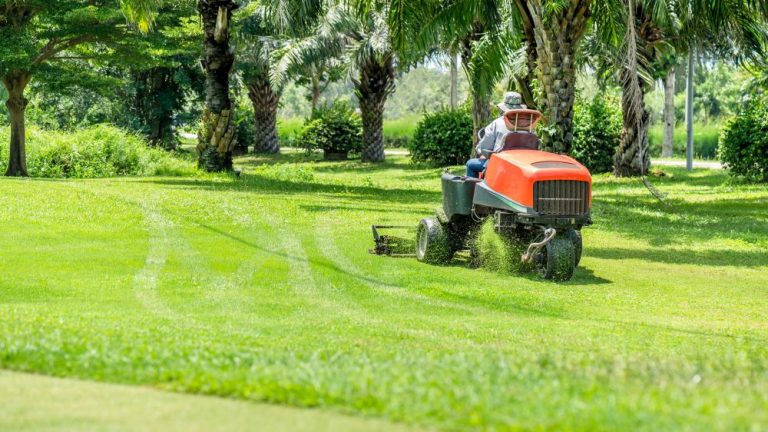Farming has come a long way from the days of manual labor and horse-drawn plows. Modern commercial farming now depends heavily on a wide range of vehicles designed to increase productivity, reduce physical strain, and maximize efficiency across large agricultural operations.
From tractors to trucks, each machine serves a specific purpose that contributes to the smooth operation of a farm. These vehicles not only save time but also help farmers manage larger plots of land with fewer resources. Let’s take a closer look at some of the most used vehicles in commercial farming and how they keep modern agriculture moving forward.
1. Tractors: The Heart of Every Farm
Tractors are the backbone of commercial farming, serving countless functions across different agricultural operations. They’re used for plowing, planting, harvesting, and transporting materials, making them indispensable on any farm. Modern tractors come with advanced technology like GPS guidance and automatic steering, helping farmers work more efficiently and accurately. Whether it’s pulling heavy loads or operating various attachments, a reliable tractor can handle nearly any task on the field.
Farmers often look for trusted brands such as Lilly Kubota when exploring tractors for sale that combine durability, power, and versatility. With proper maintenance, a high-quality tractor can last decades and handle the demands of commercial farming with ease. In essence, tractors remain the driving force behind productivity in the agricultural world.
2. Commercial Riding Mowers: Keeping Large Fields in Shape
A commercial riding mower is a must-have vehicle for maintaining vast stretches of farmland, orchards, or pasture areas. Unlike traditional push mowers, these machines are designed for efficiency, allowing operators to cover acres of land in a short time. They’re built with powerful engines and durable blades that can tackle thick grass and uneven terrain with ease.
Many commercial farmers use them to keep the land tidy and accessible for workers and vehicles. Their comfortable seating and ergonomic controls also make long mowing hours less tiring. Beyond aesthetics, regular mowing prevents overgrowth that can harbor pests or interfere with irrigation systems. Overall, commercial riding mowers play a practical role in preserving both the beauty and functionality of farmland.
3. Pickup Trucks: The Everyday Workhorse
Pickup trucks are another essential vehicle in commercial farming, offering unmatched flexibility for hauling supplies, tools, and livestock feed. Farmers depend on them to move materials between barns, fields, and markets with minimal effort. Their strong towing capacity makes them ideal for transporting trailers and small machinery. Modern pickups are equipped with advanced suspension systems and four-wheel drive, allowing them to navigate rough terrain effortlessly.
They also serve as mobile offices or storage spaces during long workdays in the field. Some farmers even use them for light construction or maintenance tasks around the property. Simply put, pickup trucks are indispensable for handling the day-to-day logistics of farming life.
4. Utility Vehicles (UTVs): Compact Yet Powerful Helpers
Utility vehicles, or UTVs, are smaller but equally important assets on a commercial farm. These compact, all-terrain machines are perfect for quick transport of workers, tools, or small loads across fields and narrow pathways. UTVs can easily navigate muddy or rocky areas that larger trucks may struggle with. Many models feature dump beds, racks, and towing hitches that make them incredibly versatile for different farming needs.
They are also fuel-efficient and easy to maintain compared to larger vehicles. Farmers often rely on UTVs for tasks like checking irrigation systems, fencing, or livestock management. Their convenience and adaptability make them one of the most efficient vehicles for everyday farm operations.
5. Transport Trucks: Moving Harvests and Supplies Efficiently
Transport trucks play a crucial role in moving crops, livestock, and equipment from farms to distributors, markets, or processing facilities. These heavy-duty vehicles are built to handle large loads while maintaining product quality during transit. In large-scale farming, timing and efficiency are critical, and trucks make sure goods reach their destination on schedule. Some are refrigerated to carry perishable items like dairy or produce, ensuring freshness upon arrival.
They’re also vital for bringing in bulk supplies like feed, fertilizer, or fuel from suppliers. Many farms have a fleet of transport trucks to streamline logistics and reduce dependency on external carriers. In short, these vehicles form the vital connection between production and distribution in modern agriculture.
Conclusion
From powerful tractors to dependable trucks, every vehicle in commercial farming has a unique role in sustaining productivity and growth. These machines not only make work easier but also enable farmers to manage operations with greater precision and care. As technology continues to advance, farming vehicles are becoming smarter, safer, and more energy-efficient.
Whether it’s maintaining fields, transporting goods, or cultivating crops, modern machinery keeps agriculture moving forward. Investing in the right equipment ensures that farms can meet the growing demands of today’s food supply chain. Ultimately, the combination of reliable vehicles and skilled hands is what drives success in commercial farming.


